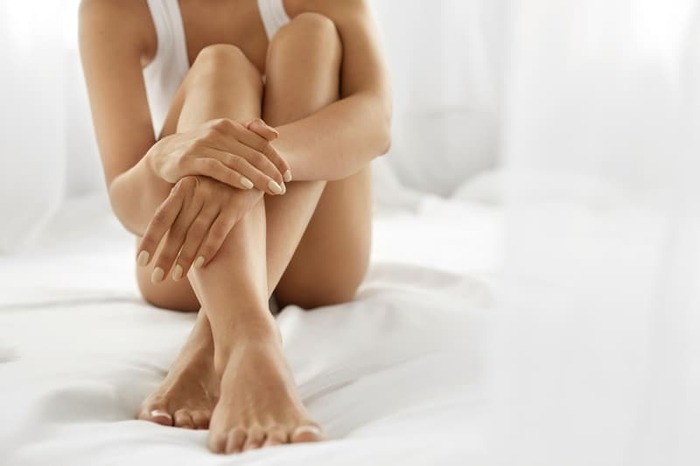- Calls to this hotline are currently being directed to Within Health, Fay or Eating Disorder Solutions
- Representatives are standing by 24/7 to help answer your questions
- All calls are confidential and HIPAA compliant
- There is no obligation or cost to call
- Eating Disorder Hope does not receive any commissions or fees dependent upon which provider you select
- Additional treatment providers are located on our directory or samhsa.gov
A Look at Actual and Ideal Body Image

Body image is the way someone feels about their body shape or size. Negative body image is common in people with eating disorders. Researchers are looking into what contributes to negative body image.
Body Image & Eating Disorders
People with eating disorders tend to have negative body image. This means they don’t like the way their body looks. While everyone deals with this sometimes, people with eating disorders may spend most of their day thinking about it.
The fear of becoming fat can be so scary or depressing for people that they may use disordered eating behaviors as a way to prevent gaining weight. In fact, research shows that people with negative body image are more at risk for developing an eating disorder [1].
Mental Health & Body Image
Eating disorders are mental health conditions, so the fact that poor body image can lead to an eating disorder is significant. However, there are other mental health consequences that can arise when someone is struggling with the way their body looks:
- Low self-esteem
- Isolation
- Anxiety
- Depression [2]
Some people may say that caring about the way your body looks is shallow or vain. It’s neither of those, it’s just human. We all care about what we look like. What’s important is not whether we care or not, but the impact it has in someone’s life. There’s a difference between having a bad body image day and engaging in disordered behaviors to make your body look different.
Actual vs Ideal Body Image
Eating disorder professionals and researchers have been trying to understand the ins and outs of what leads someone to feel dissatisfied with their body. Body image can be shaped by a variety of things, such as images in the media or comments made by family and friends [2]. However, recent research on body image revealed some interesting information: Body dissatisfaction is a result of thinking the way your body looks is not how it is supposed to look [1].
This study uncovered that the participants’ beliefs about thinness or fatness were important [1]. For example, if someone believes that being thin is the only attractive body shape, then they are more likely to be critical of themselves if they live in a bigger body.
It’s really important to know that it’s someone’s own beliefs about their body that influence whether they like their body or not. However, we have to ask why people have beliefs about their bodies. Why do people think that being thin is better?
Child development specialists will tell you that when we’re children, we absorb information like a sponge. We’re learning about the world through our experiences and what we’re exposed to. This means that media or comments from friends or family about our bodies can influence our beliefs throughout our life.
This is evident in some research studies that have been conducted within the last fifteen years. One study showed that 47% of elementary-school-aged girls who read magazines wanted to lose weight after seeing pictures of other people [3].
The comments we receive, whether from media or the people in our life, have a profound impact on the way we view ourselves and our overall mental health.
Body Positivity & Prevention
Recent research shows that there are two effective prevention methods:
- Teaching people that it’s okay to have a larger body
- Helping people view themselves as more than just a body. Support them in developing a sense of self that is more complex instead of based on appearance [1]
This is the truth. Just like there’s more than one right way to have a body, there’s more than one thing that determines someone’s identity. If we, as a society, learn to value ourselves for our complexity as human beings, then maybe people would start to feel more satisfied with their body image.
Resources:
[1] López-Hernández, Mónica, Jiménez-Quińones, L., Blanco-Romero, A.L., & Rodríguez-Valverde, M. (2021). Testing the discrepancy between actual and ideal body image with the implicit relational assessment procedure (IRAP). Journal of Eating Disorders, 9(82). 1-12. [2] Office on Women’s Health. (n.d). Body Image. https://www.womenshealth.gov/mental-health/body-image-and-mental-health/body-image [3] National Eating Disorders Association. (n.d). Media & Eating Disorders. https://www.nationaleatingdisorders.org/media-eating-disordersThe opinions and views of our guest contributors are shared to provide a broad perspective on eating disorders. These are not necessarily the views of Eating Disorder Hope, but an effort to offer a discussion of various issues by different concerned individuals.
We at Eating Disorder Hope understand that eating disorders result from a combination of environmental and genetic factors. If you or a loved one are suffering from an eating disorder, please know that there is hope for you, and seek immediate professional help.
Published September 1, 2021, on EatingDisorderHope.com
Reviewed & Approved on September 1, 2021, by Jacquelyn Ekern MS, LPC
Samantha Bothwell, LMFT, is a licensed Marriage and Family Therapist, writer, explorer, and lipstick aficionado. She became a therapist after doing her own healing work so she could become whole after spending many years living with her mind and body disconnected. She has focused her clinical work to support the healing process of survivors of sexual violence and eating disorders. She is passionate about guiding people in their return to their truest Self so they can live their most authentic, peaceful life.

